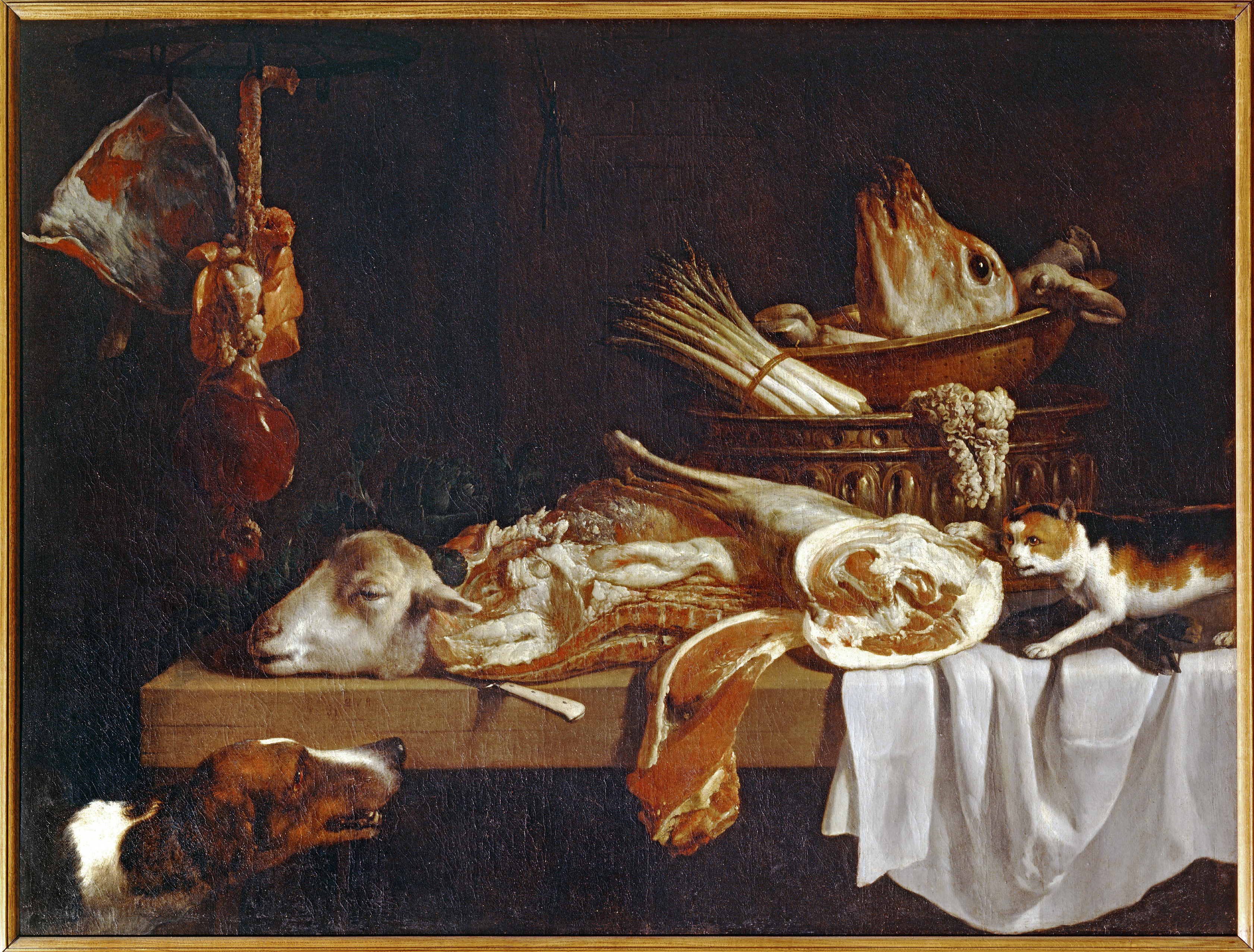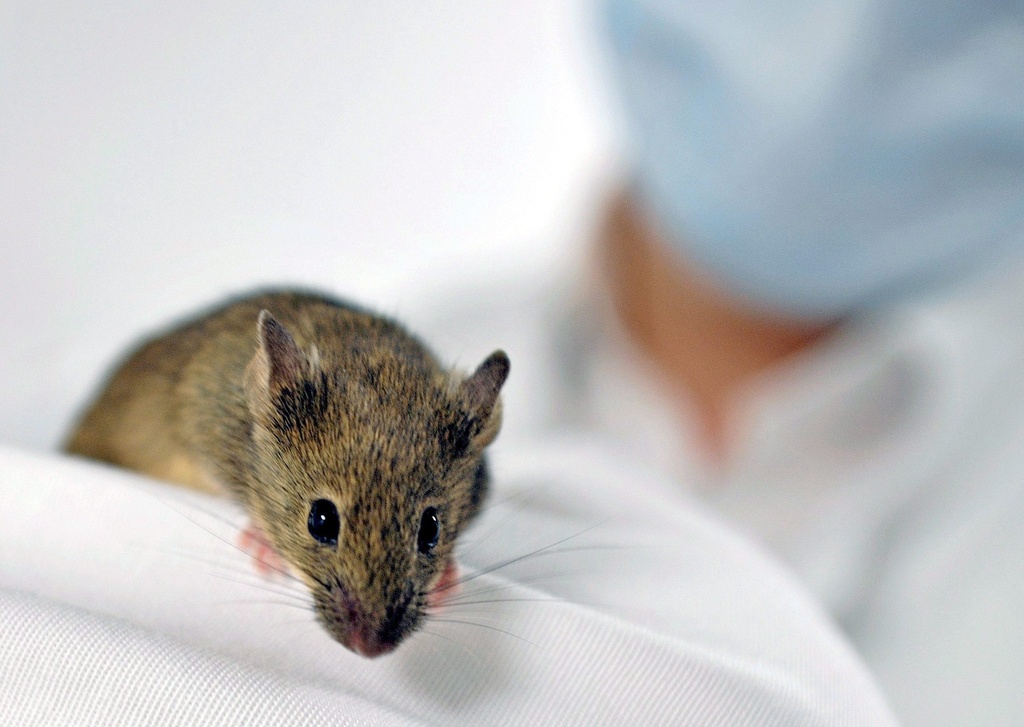Animal lovers question morality of eating pets

It’s not illegal to eat dogs and cats in Switzerland – a fact that horrifies many pet lovers. Yet it remains rare, making people question the need for a ban or guidelines for slaughter practices.
The debate has been simmering for years, occasionally brought to the boil by a media report – such as the recent article in the Zurich-based Tages-Anzeiger. The daily newspaper quoted people who, speaking on the condition of anonymity, said that they sometimes consumed cat and dog meat.
“It’s nothing exceptional – meat is meat,” said a farmer from eastern canton St Gallen. A farmer from neighbouring Appenzell described how he might shoot or club a dog to death, have him butchered by a colleague, and then smoke the meat.
“If I serve Mostbröckli [normally smoked beef], nobody notices that it’s dog meat,” he told the newspaper. Meanwhile, others quoted by the paper said that times had changed – and that it was now taboo to eat Fido and Fluffy.
Exactly how many people in Switzerland have partaken of cat or dog meat is impossible to establish. But if the topic comes up in conversation, it seems there’s always somebody who can bring an anecdote to the table.
Like the one about the farm-hand whose family smoked dog meat in the fireplace. Or the recipe for cat stew that was printed in a small town newsletter. Or the dog that had died, and was then eaten by the family that owned him.
“I have heard of it happening in eastern Switzerland, but as far as I know, it’s very, very rare; 99.5 per cent of the Swiss would be against eating cats and dogs,” believes Dennis Turner, a Zurich-based ethologist and animal psychiatrist.
“As it’s not widespread, I don’t think we need a law forbidding the consumption of cats and dogs,” Turner told swissinfo.ch.

More
What’s your beef, meat eater?
Missing, feared eaten?
Martina Karl, president of the Swiss animal rights group Mensch-Tier-Spirits-Helvetia, disagrees with Turner. She puts the figure of Swiss dog- and cat-eaters at three per cent. Her organisation is collecting signatures calling for a ban on the practice.
“Dogs and cats are pets and they shouldn’t be killed for food. Breeding and capturing them in order to eat them should be a crime punishable by law,” Karl told swissinfo.ch. Since January 2, her organisation has collected 1,900 signatures.
In 1993, another animal protection group collected 6,000 signatures for a similar petition, but the Swiss parliament decided that it was not necessary to regulate people’s eating habits.
What is forbidden in Switzerland is the sale of dog or cat meat – for example via a butcher or restaurant.
Karl finds the disappearance of cats particularly worrisome. According to the Schweizerische Tiermeldezentrale (Swiss bureau for lost pets), 10,000-20,000 pets disappear every year; 80 per cent of them are cats.
Yet the head of Swiss Animal Protection, the country’s biggest association of its type, doubts that many of these cats landed in somebody’s casserole dish.
“Maybe 100 to 200 people in Switzerland eat dog or cat meat from time to time,” Hansuli Huber told swissinfo.ch, saying that the three-per-cent claim by Karl was far too high.
With such low incidence, Huber said that he did not see the need for an all-out ban. Yet he did see room for improvement.
“What is very unsatisfactory is that there are no slaughter regulations. You at least have to have a law on how to kill them properly,” Huber suggested, as is the case for pigs, cattle and poultry.
However small, the appetite for feline and canine dishes is also questionable he added.
“There’s so much meat in Switzerland. We don’t need to eat cats and dogs, too,” Huber said.
In 2005, the Swiss parliament passed the Animal Welfare Act to preserve the dignity and well-being of animals. It includes a number of regulations, for example:
– Animals cannot be transported on journeys of longer than six hours.
– Piglets cannot be castrated without anaesthesia.
– Mammals can’t be slaughtered unless they have been stunned first.
– Ritual slaughtering is illegal, yet halal and kosher meat can be imported.
– The import of cat and dog skins or related products is forbidden.
– Researchers must justify the need for all experiments on animals.
– The mistreatment and neglect of animals is punishable by imprisonment or a fine.
Pets or meat?
Turner did an in-depth study on cultural differences in attitudes toward animals, covering 12 nations (including Switzerland and China) and five major religions.
“The vast majority of adults – in all of those countries – disapproved of eating cats and dogs,” Turner said. “I think the main reason for the disapproval is that people have personal relationships with dogs and cats. Wherever there’s a personal relationship, you’re against consuming meat from that species.”
He also mentioned that pet keeping was on the rise in China, causing a change in people’s attitudes about animals there. Yet just last year in Italy, a TV cook blithely described a method of cooking a cat – to the horror of many viewers and the studio presenter.
On the other hand, Turner pointed out that Europeans consume rabbit and veal – which would be frowned upon in other places. And while horse steak regularly appears on Swiss menus, British supermarket chain Tesco is currently under fire because horsemeat was found in its beef burgers.
Turner himself would have a moral issue with eating canines and felines.
“In places where the majority of people have dogs and cats as companion animals, I do think that it’s morally wrong [but] I don’t think we can criticise people from other cultures, such as Korea or China, who might have different standards or attitudes about the animals than we do,” he said.
Asked how pigs and chickens compared to cats and dogs, he answered, “They’re not different, but most consumers don’t have a personal relationship with this type of animal. Only the farmer might have a personal relationship, but it’s rare that he butchers the meat himself.”
Karl, a long-term vegetarian, does make a distinction between pets and livestock.
“Pets are family members that relax on the couch and bed, unlike cows,” she said. However, she urged meat-eaters to think more critically about the origin of their filet – including how the animal had lived and died.
Turner finds that in general, the relationship between humans and animals has improved over the past century.
“There’s more respect for animals, even if we consume them. The idea of humane slaughter has come up and is being enforced by laws in ever more countries,” Turner said, noting that Switzerland had some of the most advanced animal welfare and protection laws in the world.
He also cited the increase in research on how to properly house animals – whether at home or on the farm – so that all of their biological and psychological needs are met.
However, Turner acknowledged that there was still a lot of work to be done.
There are no precise figures about the number of pets in Switzerland.
However, it is estimated that there are about 1.35 million cats and 500,000 dogs, and about 4.5 million fish.
In 2011, Swiss shelters took in about 23,400 unwanted animals – including 13,000 cats and 4,000 dogs. Meanwhile, some 16,000 homeless animals were adopted in 2011.
According to Proviande, each Swiss resident ate an average of 53.74 kilogrammes of meat in 2011, an increase of 3.3 per cent compared with 2010.
Consumption peaked in 1987, a year when the Swiss ate an average 71 kilogrammes of meat per person.
Pork is the meat of choice, with the average person eating nearly 25kg per year. Poultry and beef are about equally popular, with 11.43 and 11.29 kilos respectively.

In compliance with the JTI standards
More: SWI swissinfo.ch certified by the Journalism Trust Initiative












You can find an overview of ongoing debates with our journalists here . Please join us!
If you want to start a conversation about a topic raised in this article or want to report factual errors, email us at english@swissinfo.ch.